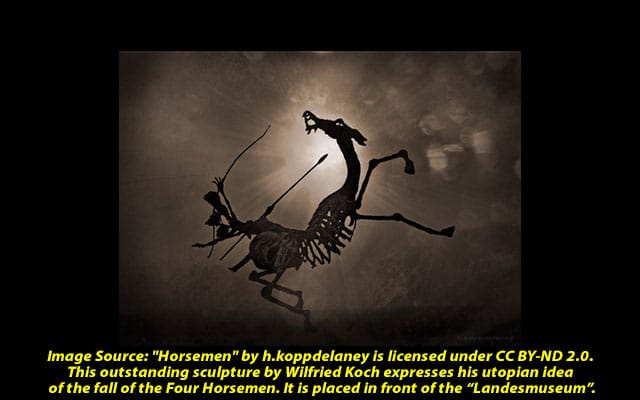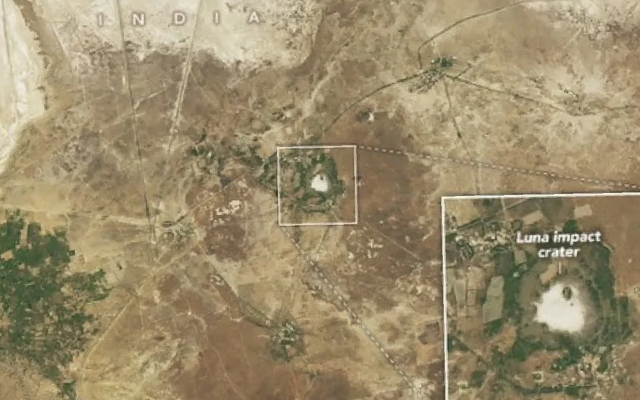History is a grand view of the present and not simply something of the past, Spenser Wells tells us in his forward to his book ‘Pandora’s Seed’. Cognitive, natural, physical and psychological scientists have been expressing their thinking that the world is in a flux, that we are on the brink of a transition, and that the world will be fundamentally changed somehow during the time of the next few generations. We, the Homo Sapiens, have a complex culture. Hence, there is a need for us to turn to history to understand who we are and deal with the phenomenon of flux through the application of our own cognition. No doubt, our success in this is dependent on negating the prediction of Stephen Hawking that the world would come to an end sooner or later, sooner than later. The scientist did predict several things which came true. Hence, the matter is more alarming.
History of the world tells us about the progress and growth into the ever-increasing comforts of living that humans made for themselves. Simultaneously it also tells us about the disasters that accrued alongside and also the evil that humans exhibited which resulted in untold misery for millions of people. Fast-spreading epidemics, and lack of food mostly because of unnatural calamities and egos of chieftains or kings that created conflicts between communities and countries leading humans to death and destruction of humankind for several centuries. If the number of people who died because of epidemics or lack of food or because of conflicts are taken into consideration, one understands that it is much more than what unexpected natural calamities would have killed. Man-made spread of plague, the continuation of famine or engagement in war are all part of the tragic history of man on earth after humans became empowered with brain and mind.
Any perusal of human history for the last 2500 years brings us the resolutions and tasks that humans have taken against the spread of plague. Though medical science is yet to discover an effective medicine for the common cold or similar easily treatable diseases, it has made great strides to fight against diseases, is fairly successful in most cases, and has been relieving humans from pain and suffering. Similarly, famines occurred from time to time taking away the lives of humans, and even animals and other beings, in millions in the past. Humanity stood with concern and a sense of defeat when wheat, potatoes and other grains and vegetables that they grew withered away and there was not even enough water to drink. While chieftains, kings and emperors led their armed forces to fight against each other, sometimes even on the flimsiest of grounds, the humans around them would only get killed as they went shouting about their loyalty to their ruler. Today, most rulers are reluctant to commence a war even when there are strong reasons to start one.
For several centuries, humans were shocked into a defeated status with the advent of plague, famine and war with all their ramifications and impacts. However, the cognitive developments and the scientific advancements of the middle ages and later, the technological and biological discoveries of the twentieth century and the knowledge revolution of the present century have shown to the world newer possibilities of eradicating plague, famine and war. The progress that humans have made during the last quarter of a century is equal to what they would have made in the previous two centuries. It is easy to notice that the progress in science and technology to defeat plague, famine and war is faster than what has been happening in the previous centuries. Ebola or AIDS met their enemies in the hands of medical researchers who came out with chemical treatment solutions to nullify their effects. Any community or nation which faces famine gets food sent by other nations to circumvent the scarcity of food or other needs. In the last seven decades, especially after the threads of a possible world war melted, no superpower is thinking of waging war against another.
History records that 5 per cent of the population perished during the severe drought of ancient Egypt, so is the case of what happened in medieval India. Between 1692 and 1694, 15 per cent of the French succumbed to death because of famine. The famine in Estonia in 1695 killed 20 per cent of their population. In 1696, Finland lost a quarter of its people because of its famine. In 1695, Scotland lost up to 20 per cent of their population. Humanity no more suffers from natural calamities as happened and as described above or even if there is a cause for a calamity, there are enough people, with enough knowledge, with enough money and with enough matter to deal with it. Rarely do we see human hunger because of famine in the forms in which we have seen them in medieval times. Also, today, if there is any famine in any country in the world which is making its people die, it is due to political reasons and hence could be called political famine. In fact, in the modern world, there are more people who die because of overeating rather than not eating. If or when earthquakes or tsunamis in which people may get killed, there is always support from other nations to save the suffering ones. The world has become more or less a single unit not only as an open global market but also as a collective of globally connected people.
The plague killed 75 million in the beginning of the 15th century, four out of ten Englishmen died because of the plague. In 1520, a Spanish flotilla from Cuba travelled to Mexico; it carried a slave called Francisco. He carried the smallpox virus on him. He was the harbinger of the dreaded sickness in Mexico and 22 million people died and only 14 million remained. As of now, we not only fight against diseases in our own country but take action plans by which any epidemic will not spread into our own countries or from our county to other countries. Till the beginning of the twentieth century, children and women died at childbirth. Today, we hear very little about death of a mother or child associated with delivery unless it is because of lapses of other humans. The recent report of the health ministry shows that Kerala as a state has the least of child deaths, that is, only 6 per every one thousand which is equal to that of the United States or slightly less than some of the European countries. Of course, one need not totally forget the case of UP which has a ratio of 42 child deaths in every thousand with which record they are the highest child mortality state. Yet, this is much less than what it could have been in the 18th or 19th century for which we do not have access to records.
Post second world war, in fact within a short period of less than two decades, two mighty powers came to commence a third world war. In the early sixties, when President Kennedy asked Nikita Khrushchev, the Russian premier to remove all the missiles from Cuba, the world kept its ears open to hear about the third world war. However, Khrushchev became a bigger peacemaker by removing the missiles and a third world war was averted. Though there are more than 5 major nuclear weapon states, none of them threaten each other with the use of a nuclear missile. Despite skirmishes, Israel and Palestine still exist side by side. So is the case with Kashmir and the contention between India and Pakistan in which the verbal provocations get accelerated though the conflict is minimal as the terror groups express only their weakness through hidden attacks. The two Koreans who never wanted to look at each other even in sports and games, have become silent recently after threatening wars against each other. So, there is no threat of a world war, even though smaller little fights in which smaller groups of people die, happen over and over again. Of course, the Ukraine war is an exception and it is to be noted that it does not spread to their neighbours. Though such things have the potential to start as a third world war, the parties involved are careful not to be beginner. Even the cyber war heroes do not get welcomed as the Grecians or the Romans got welcomed after a war in the past. In fact, these days, sugar kills more people than war is capable of killing.
So, are we to believe that plague, famine and war will not happen at all? Do we want to believe that all forms of the virus will go away like those of smallpox? Do we want to believe that nature will always be kind and chances of famine do not exist at all despite the fact that global warming is increasing? Do we want to believe that there will be no unintelligent leading ruler in any country who might start a war which could escalate into one that will engulf more nations to commence a third world war?
The answer ought to be in the negative.
Considering the discoveries of viruses of AIDS, Ebola, Viral Flue, Chikungunya or Covid, one can never be sure that there will not be any more new diseases or epidemics that will kill humans in plenty or incapacitate them either temporarily or forever. Similarly, if global warming is going at the speed with which it happens, one cannot deny the possibility of a famine at least in certain parts of the world. Famine could also be the result of a tsunami or a huge volcanic eruption, or even the aftereffects of a nuclear device used by any nation. Also, the Chekhov law stands over our heads as a Damocles sword to fall as one recollects what the Russian famously wrote: “If in the first act, you have hung a pistol on the wall, then in the following one it should be fired. Otherwise don’t put it there”. True enough, Chekhov gun, the word ‘gun’ is alternatively used for ‘law’, is a matter to be considered because with the type of arms buildup that is happening in various parts of the world and if Chekhov law is true, one day or other, there could be a war. Though George Bush foolishly declared in his shouting pitch, in fact, it was more stupid than foolish, that there were Weapons of Mass Destruction in Iraq that destroyed an otherwise progressive state into rubble and the consequential retaliation, and the consequential destruction of people and materials in the state, Bush’s stupidity and foolishness did not result in other countries fighting against his country. However, the possibility cannot be ruled out. So, the threat of plague, famine and war still remains though at a distance.
Annihilation of viruses to neutralise plague, research and development in the field of agriculture and climate to avoid any possible famine and greater and better relationships between nations to avoid war are the pinnacle of thoughts in the minds of humans who believe in possibilities of human life continuing creatively and peacefully in the future generations. If the humans of the past attributed reasons for plague, famine or war to the curse of God, or, in the minds of a few, the displeasure of nature, the modern man understands that all three; plague, famine and war are products of the intricately developed human mind.
It is time for us to come nearer home. Child mortality may be the lowest in a state like Kerala, but it is a state which has the highest rate of diabetes, heart diseases, and to top both, suicides. It also has the highest rate of people who drink alcohol despite being the highest in the ratios of education and health. We have peaceful quiet systems of states but the lack of water in the forests of the Western Ghats and a Kaveri flowing down with little less water can create a lack of paddy growth in the Kaveri basin and result in a lesser amount of rice production leading to lack of it in our own homes. The death of a little girl in the Kashmir valley can result in bullets fired against the youth and stones against the army in Kashmir that could escalate into a minor war just as it was about to begin when pellets were fired against our own youth by our own law enforcers.
So, despite everything being better these days, there could yet be plague, famine and war though in smaller measures, and hence manageable unlike those of the past centuries. One can only assure oneself that they would always be manageable and would not result in the destruction of millions in one go. That is the vision of the largest number of people in the world. One deeply wishes that this vision will ask for missions, completions of which will avoid the plague, famine and war forever.
………………………………….
Prof. Sunney Tharappan, is Director of the College for Leadership and HRD, Mangaluru. He trains and writes and lives in Mangaluru.

















